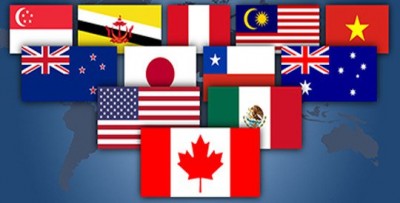Why Is Canada Keeping the New “Secret” Continental Climate Deal with Obama under Wraps?

Behind the glamour of the vogue power couple from Canada being hosted by U.S. President Barack Obama for a dinner at the White House, lies a secret continental climate strategy the two leaders will reportedly sign.
Prime Minister Justin Trudeau will not endorse the Trans Pacific Partnership there because the government “has a very deep commitment to transparency and a full national dialogue,” according to International Trade Minister Chrystia Freeland.
Why the double standard? Why should Canadians not be as widely consulted on a continental climate strategy, too?

Energy ministers in the three NAFTA countries agreed in Winnipeg on Feb. 12 to forge a continental clean energy accord.
Canada’s Natural Resources Minister Jim Carr said the Winnipeg agreement builds on “strides” made toward a continental energy strategy. That’s news to Canadians. What strides and to what end?
Would a continental energy strategy help Canada meet its ambitious Paris climate promises? Will it lock Canadians into their traditional role as diggers and exporters of carbon fuels?
There are reports a continental clean energy deal would be about tighter fuel and auto-emission standards, electric cars, and self-driving vehicles. If that’s all it is, Canadians would probably support it. But why did Carr talk about a continental energy deal to be discussed by the leaders of the three Amigo countries in May in Canada. Or are those separate, secret talks?
Powerful interests are pushing for a continental climate-energy deal.
In 2014, a task force of the Council on Foreign Relations, based in New York, called for an energy and environmental strategy with Canada and Mexico to “strengthen the United States at home and enhance its influence abroad.”
The task force was headed by David Petraeus, former head of the CIA and former commander of the occupation forces in Iraq, and Robert B. Zoellick, former president of the World Bank and current chairman of Goldman Sachs’ international advisers. They call for cross-border energy regulatory and policy integration. That’s usually code for Canada and Mexico adopting the American way.
It’s easy to see why U.S. officials want continental energy integration. Despite the recent surge in domestic oil production, the U.S. is forecast to still import more than a quarter of its oil through 2035. Washington sees Canada and Mexico as much safer oil suppliers than the Middle East and Venezuela.
But would energy integration give Canadians energy security? Canada imports about 40 per cent of its oil. Eastern Canadians are vulnerable to international oil shortages.
If she becomes president, Hillary Clinton promises to immediately launch negotiations on a North American climate pact so the U.S. will lead the world in transitioning to a clean-energy economy and ensure Americans’ security.
But how will Canada get to a low-carbon future if it chains itself to massive carbon fuel exports?
Why should Canada tie its carbon-reducing plan with a country whose largest emissions — one-third — are from coal-fired electrical power plants? Obama’s paltry plan — put on hold by the Supreme Court — is to reduce such emissions by only 30 per cent by 2030. Ontario has completely eliminated them. Alberta will phase out coal power generation by 2030.
Canada’s main carbon emissions lie elsewhere. It’s the production of oil and natural gas, mainly for export, not autos and trucks used by Canadians, that is Canada’s biggest source. Alberta’s oil sands are the fastest-growing source. Its growth to Alberta’s “cap” of 100 megatonnes (Mt) a year, is the main roadblock to Canada cutting emissions from a projected 765 Mt to 524 Mt by 2030. Canada can’t meet those Paris promises if it’s locked into being America’s gas tank.
Phasing out carbon energy exports and oil sands production will cut our emissions the most.
Given the power imbalances, the U.S. will call the shots in a North American clean energy pact. Where would that leave the many Canadians pushing their governments for serious climate action? Their governments will have little ability to do much if they’ve given up sovereignty on climate action.
Washington often doesn’t heed the wishes of American citizens. It doesn’t care a whit what Canadian and Mexican citizens think.
If Ottawa is pursuing a continental clean-energy deal, it must widely consult with Canadians before ratifying it.
Gordon Laxer is the author of After the Sands: Energy and Ecological Security for Canadiansand the founding director of Parkland Institute at the University of Alberta.

